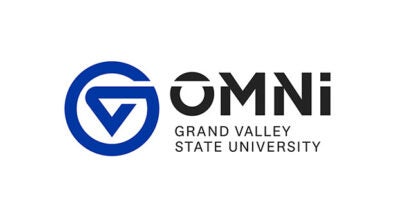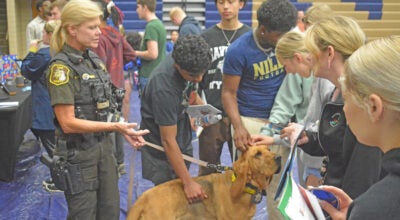Path from community college to four-year college smoothed out
Published 8:32 am Tuesday, February 11, 2020
DOWAGIAC — Katherine Gries shared her situation transparently: most students at her employer, Southwestern Michigan College, enroll with plans to transfer to receive a bachelor’s degree.
It is her role as the academic advising manager to help those students choose courses that will engage them, educate them and be transferable to their future four-year institution.
A decision made by most community colleges and many four-year colleges and universities in the state is meant to make choosing the right courses easier.
Last Tuesday, the Michigan Community Colleges Association announced that certain community college programs in biology, business administration, criminal justice and psychology would be made transferable as general education credits to 25 partnering four-year colleges and universities.
Participating community colleges laid out courses eligible for transfer credit in the four academic programs.
“For us, it’s education for all,” Gries said. “We want you to get your education at SMC, but we also want to see you move onto that four-year.”
The transfer agreement made the path to a bachelor’s degree easier, she said.
Gries and SMC faculty from each of the four academic programs granted general education credit went to Lansing last year to help determine which specific courses would be made transferable.
Faculty and advisers across the state worked together to devise the list in two sessions, Gries said.
For example, to receive transferable credit in psychology, a student at a participating community college must take intro to psychology, abnormal psychology, social psychology and developmental psychology. SMC will also require students to take other psychology courses to round out the program.
“Our goal is to streamline a pathway process from community colleges to four-year colleges and universities,” Gries said.
Gries said many students will immediately benefit from the transfer agreement because it makes planning for the future easier. Previously, transferring was difficult because many colleges had different rules for accepting credit.
“They’re going to take that pathway because they want an easy transition,” Gries said of SMC students. “They don’t want to get weighed down in the details. They want to make sure that they have a clear pathway to get to here from there.”
SMC particularly benefits because it does not have a nearby four-year university. Institutions such as Lansing Community College and Kalamazoo Valley Community College have universities miles away from them. These colleges have established great pathways for transferring between each other, Gries said.
SMC has developed relationships with Western Michigan University in Kalamazoo and Grand Valley State University in Allendale, but the new transfer agreement opens up partnerships with many more institutions, she said.
The agreement has its roots in the 2014 Michigan Transfer Agreement, spearheaded by the Michigan Community Colleges Association. It allowed students to transfer up to 30 credit hours from one college to another by taking specified courses in English, mathematics, social sciences, natural sciences and humanities.
The 2020 agreement puts students on a more specialized track that can place them closer to a specialized degree. That means students can save money and learn whether their career path is right for them while at community college, Gries said. Community colleges are often cheaper to attend than four-year colleges and universities.
The Michigan Community Colleges Association and college representatives are also finalizing transfer pathways for eight more academic programs: art, communications, computer science, English, kinesiology/exercise science, mechanical engineering, public health and social work.
Stakeholders will finalize agreements for the eight pathways between participating colleges May 1.
Gries said the combined 12 transfer pathway options lead to some of the most sought-after careers.
Not all colleges have participated in the 12 career options. Some institutions simply do not have some of the programs — such as mechanical engineering and criminal justice — Gries said.
Some four-year institutions did not participate at all.
To find out which colleges did participate in the agreement, readers can visit mitransfer.org/michigan-transfer-agreement.






